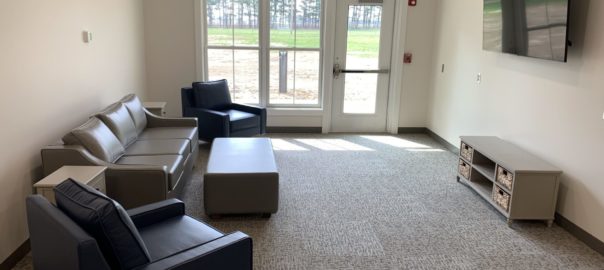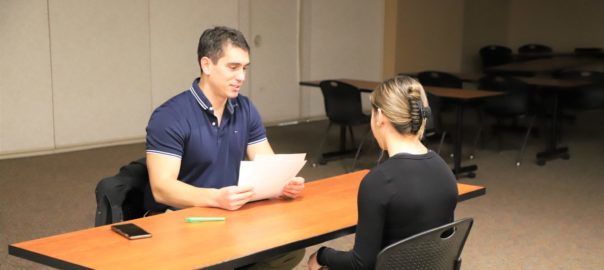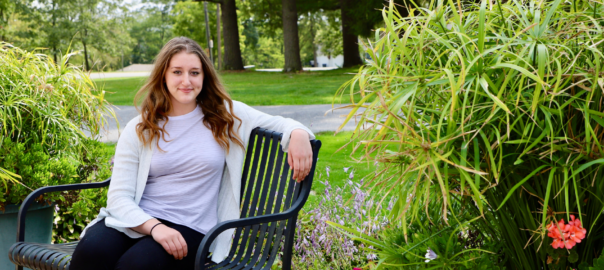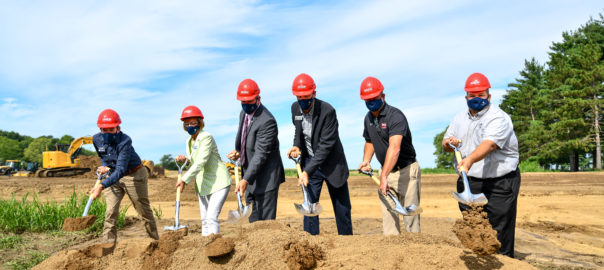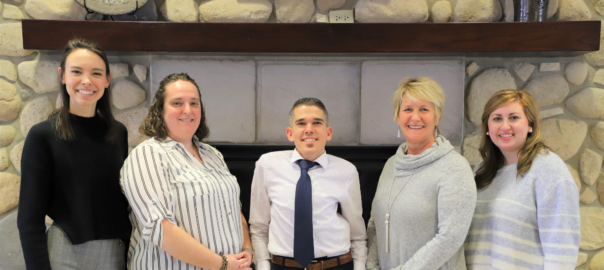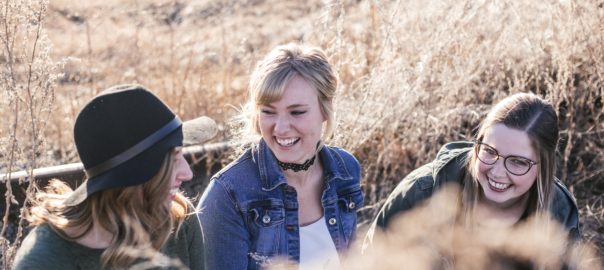Compass Rose Academy is thrilled to announce the addition of therapy animals to our treatment program! This initiative will involve the addition of one therapy dog into each of the three student homes. The dogs will be therapy dogs or therapy dogs-in-training and houseparents will receive handler training. The students will interact with the dogs in their own living environment and will also participate in caring for the dogs by sharing chores and responsibilities related to feeding, grooming, and otherwise tending to the dog’s needs.
CRA has partnered with highly reputable breeders and trainers in the area to provide dogs that are well-bred and trained for therapy. Our partnership with the trainers provides a variety of on and off-site training. The training agency will work with Compass Rose and our dogs to see them through a therapeutic training process as well as support the integration of the dogs into our overall program and milieu. For the past couple of years our team has been researching and learning about how and why to incorporate therapy dogs into our program and believe there will be significant benefits for our girls!
Dogs are undoubtedly viewed as having among the closest ties to humans. While some liken the human-dog relationship to the friendship of adult pair bonds (Menna et al., 2019), Payne et al. (2015) say that the human-dog dyad is actually has attachment patterns that most closely resemble the parent-child relationship. The relationship demonstrates four key features of attachment including proximity seeking, the secure base effect, the safe haven effect, and separation-related distress. Despite some of the mechanisms of human-animal relationships remaining uncertain, it is widely accepted that animals do indeed contribute in some ways to the physical and social health of many humans (Stern & Chur-Hansen, 2013).
Perhaps due to the propensity for close bonds between some animals and humans, animals have been used in psychological treatment dating back to as early as the late 1700s (O’Haire et al., 2015). A that time they were primarily used in mental health institutions to help increase patient socialization. It was first introduced into modern psychotherapy through the writings of Levinson and Mallon in articles in the 1960s (Parish-Plass, 2008). Levinson’s primary goal was to motivate resistant children through his use of animals in therapy. Since that time, the use of animals in therapy has spread to various populations including elderly, autistic individuals, prison inmates, individuals with chronic or terminal illness, and psychiatric patients including those suffering from trauma, anxiety, or depression.
There are various types of interventions involving animals, each with a unique focus. Animal-Assisted Interventions (AAIs) are “any therapeutic process that intentionally includes or involves animals as part of the process or milieu” (Fine, 2006 as cited in Stern & Chur-Hansen, 2013).
While various types of animals are used in AAIs, dogs are most common due to factors including accessibility and trainability (Stern & Chur-Hansen, 2013). Menna et al. (2019) notes that dogs are the main species involved and studied in AAIs consider the dogs the species of choice due in part to their particular ability to read the nonverbal language of humans.
There are multiple ways that the presence of animals in therapy is believed to provide support to individual in treatment for the psychological impact of trauma. Beetz et al. (2012) propose that the oxytocin system has an important role in many of the positive psychological and psychophysiological effects. The presence of an animal may also remind the patient that the danger is no longer present, create warmth and draw positive emotions, reduce loneliness associated with PTSD, and calm anxious arousal (O’Haire, 2015).
Parish-Plass (2008) has applied Animal-Assisted Therapy (AAT) in work with children with insecure attachment due to abuse and neglect. She reports the animals’ calming presence creates a safe atmosphere for children to talk about trauma. Animals also help the child to feel less threatened by the therapist by making them feel more trustworthy. In this way the primary impact is to support a more secure child-therapist bond. She also notes that from an Object Relations standpoint, the child is also able to project objects onto animals in a way that helps them work through past issues and gain greater insight.
References
Beetz, A., Uvnäs-Moberg, K., Julius, H., & Kotrschal, K. (2012). Psychosocial and psychophysiological effects of human-animal interactions: The possible role of oxytocin. Frontiers in Psychology, 3. https://doi.org/10.3389/fpsyg.2012.00234
Dravsnik, J., Signal, T., & Canoy, D. (2018). Canine co-therapy: The potential of dogs to improve the acceptability of trauma-focused therapies for children. Australian Journal of Psychology, 70(3), 208–216. https://doi.org/10.1111/ajpy.12199
Hoagwood, K. E., Acri, M., Morrissey, M., & Peth-Pierce, R. (2017). Animal-assisted therapies for youth with or at risk for mental health problems: A systematic review. Applied Developmental Science, 21(1), 1–13. https://doi.org/10.1080/10888691.2015.1134267
Menna, L. F., Santaniello, A., Todisco, M., Amato, A., Borrelli, L., Scandurra, C., & Fioretti, A. (2019). The human–animal relationship as the focus of animal-assisted interventions: A one health approach. International Journal of Environmental Research and Public Health, 16(19), 3660. https://doi.org/10.3390/ijerph16193660
Mills, D., & Hall, S. (2014). Animal-assisted interventions: Making better use of the human-animal bond. Veterinary Record, 174(11), 269–273. https://doi.org/10.1136/vr.g1929
O’Haire, M. E., Guérin, N. A., & Kirkham, A. C. (2015). Animal-assisted intervention for trauma: A systematic literature review. Frontiers in Psychology, 6. https://doi.org/10.3389/fpsyg.2015.01121
Parish-Plass, N. (2008). Animal-assisted therapy with children suffering from insecure attachment due to abuse and neglect: A method to lower the risk of intergenerational transmission of abuse? Clinical Child Psychology and Psychiatry, 13(1), 7–30. https://doi.org/10.1177/1359104507086338
Payne, E., Bennett, P., & McGreevy, P. (2015). Current perspectives on attachment and bonding in the dog–human dyad. Psychology Research and Behavior Management, 71. https://doi.org/10.2147/PRBM.S74972
Stern, C., & Chur-Hansen, A. (2013). Methodological considerations in designing and evaluating animal-assisted interventions. Animals, 3(1), 127–141. https://doi.org/10.3390/ani3010127
Wamser-Nanney, R., & Steinzor, C. E. (2017). Factors related to attrition from trauma-focused cognitive behavioral therapy. Child Abuse & Neglect, 66, 73–83. https://doi.org/10.1016/j.chiabu.2016.11.031



